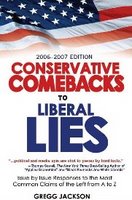Rep. Jefferson indicted in bribery probe
Source: By Lara Jakes Jordan and Matthew Barakat, Associated Press Writers.
WASHINGTON - Louisiana congressman William Jefferson (news, bio, voting record) received more than $500,000 in bribes and sought millions more in nearly a dozen separate schemes to enrich himself by using his office to broker business deals in Africa, according to a federal indictment Monday.
The charges came almost two years after investigators raided Jefferson's home in Washington and found $90,000 in cash stuffed in his freezer.
The indictment lists 16 counts, including racketeering, soliciting bribes, wire fraud, money laundering, obstruction of justice and conspiracy. He faces a possible maximum sentence of 235 years.
He is the first U.S. official to face charges under the Foreign Corrupt Practices Act, which prohibits corporate bribery overseas.
Jefferson, through his lawyer, claimed innocence. He will be arraigned Friday in U.S. District Court in Alexandria.
The schemes were complicated and Jefferson set up front companies to hide the money and disburse it to family members, prosecutors said.
"But the essence of the charges are really very simple: Mr. Jefferson corruptly traded on his good office and on the Congress," said Chuck Rosenberg, the U.S. attorney in Alexandria.
House Speaker Nancy Pelosi (news, bio, voting record) is expected to push this week for Jefferson to be stripped of his seat on the Small Business Committee, according to a leadership aide who spoke on condition of anonymity because the decision had not yet been announced.
"If these charges are proven true, they constitute an egregious and unacceptable abuse of public trust and power," said Pelosi, D-Calif. "Democrats are committed to upholding a high ethical standard and eliminating corruption and unethical behavior from the Congress."
House Republican Leader John Boehner (news, bio, voting record) of Ohio said Jefferson should be expelled from Congress if he is found guilty and refuses to resign.
Jefferson, 60, whose congressional district includes New Orleans, has said little about the case publicly. He was re-elected last year despite the investigation.
His lawyer, Robert Trout, on Monday called the indictment "lengthy and creative" and accused prosecutors of "trying to create an offense."
"Even after they turned over every rock, they did not allege in this indictment that (Jefferson) promised anybody any legislation. There is no suggestion that he promised anyone any appropriations. There were no earmarks. There were no government contracts," Trout said during a news conference in Los Angeles.
Trout also said Jefferson has no intention of seeking a plea bargain. "He's obviously not happy about being indicted, but he's confident that when the facts are known he will be vindicated," Trout said about his client. "He is committed, he is confident and he is ready to fight."
Two of Jefferson's associates have struck plea bargains with prosecutors and have been sentenced.
Brett Pfeffer, a former congressional aide, admitted soliciting bribes on Jefferson's behalf and was sentenced to eight years in prison.
Another Jefferson associate, Louisville, Ky., telecommunications executive Vernon Jackson, pleaded guilty to paying between $400,000 and $1 million in bribes to Jefferson in exchange for his assistance securing business deals in Nigeria and other African nations. Jackson was sentenced to more than seven years in prison.
Both Pfeffer and Jackson agreed to cooperate in the case against Jefferson.
The impact of the case has stretched across continents and even roiled presidential politics in Nigeria. According to court records, Jefferson told associates he needed cash to pay bribes to the country's vice president, Atiku Abubakar.
Abubakar denied the allegations, which figured prominently in that country's presidential elections in April. He ran for the presidency and finished third.
In Lagos, Nigeria, Abubakar spokesman Garba Shehu said the former vice president "has always denied wrongdoing in the matter."
"He has only had official interaction with the congressman, who the vice president felt deserved a hearing because he was a ranking member of the U.S. Congress," Shehu said. "The vice president was in no way cited in this thing, so we feel vindicated."
While Abubakar is not cited by name, the indictment refers to "Nigerian Official A," a high-ranking official in Nigeria's executive branch who had a spouse in Potomac, Md. One of Abubakar's wives, Jennifer Douglas, lived in that Washington suburb. A search warrant for the Potomac home, combined with the indictment, makes clear that Abubakar is the unnamed Nigerian official.
As co-chair of a congressional caucus dedicated to African investment and trade, Jefferson was ideally positioned to influence business contracts with African governments. The indictment said Jefferson would meet with African officials and write official letters on behalf of businesses that agreed to provide kickbacks.
Court records indicate Jefferson was videotaped taking a $100,000 cash bribe from an FBI informant who felt the congressman and another businessman had bilked her out of millions. Most of that money later turned up in the freezer in Jefferson's home.
In May 2006, the FBI raided Jefferson's congressional office, the first such raid on a congressman's Capitol office. That move sparked a constitutional debate over whether the executive branch had stepped over a boundary.
The raid's legality is still being argued on appeal. House leaders objected to the search, saying it was an unconstitutional intrusion on the lawmaking process. The FBI said the raid was necessary because Jefferson and his legal team had failed to respond to requests for documents.
Some but not all the documents seized in the raid have been turned over Justice Department prosecutors.
Assistant Attorney General Alice Fisher said the documents helped bring the case against Jefferson. "Some of those documents that we were able to obtain through the process have indeed supported the charges that are presented today," Fisher said.
Associated Press writers Michael Blood in Los Angeles, Laurie Kellman in Washington and Edward Harris in Lagos, Nigeria, contributed to this report.
Labels: arrogance, Corruption, Gov't, Justice, News









